|
Books Should Be Free Loyal Books Free Public Domain Audiobooks & eBook Downloads |
|
|
Books Should Be Free Loyal Books Free Public Domain Audiobooks & eBook Downloads |
|
History Books |
|---|
|
Book type:
Sort by:
View by:
|
By: Julian Street | |
|---|---|
 American Adventures
American Adventures
AMERICAN ADVENTURES, A SECOND TRIP ABROAD AT HOMEBY JULIAN STREETCHAPTER IHad my companion and I never crossed the continent together, had we never gone abroad at home, I might have curbed my impatience at the beginning of our second voyage. But from the time we returned from our first journey, after having spent some months in trying, as some one put it, to discover America, I felt the gnawings of excited appetite. The vast sweep of the country continually suggested to me some great delectable repast:... | |
By: Mabel Bent (c.1847-1929) | |
|---|---|
 Southern Arabia
Southern Arabia
Southern Arabia recounts a threatening four-month journey into North Eastern Ethiopia by the Bents. These brave travelers were the first to travel without disguise in a region where Westerners had formerly been fortunate to escape with their lives. | |
By: Mary Seacole (1805-1881) | |
|---|---|
 Wonderful Adventures of Mrs. Seacole in Many Lands
Wonderful Adventures of Mrs. Seacole in Many Lands
I should have thought that no preface would have been required to introduce Mrs. Seacole to the British public, or to recommend a book which must, from the circumstances in which the subject of it was placed, be unique in literature. If singleness of heart, true charity, and Christian works; if trials and sufferings, dangers and perils, encountered boldly by a helpless woman on her errand of mercy in the camp and in the battle-field, can excite sympathy or move curiosity, Mary Seacole will have many friends and many readers... | |
By: Walter W. Bryant (1865-1923) | |
|---|---|
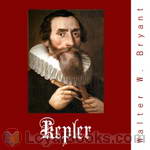 Kepler
Kepler
This biography of Johannes Kepler begins with an account of what the world of astronomy was like before his time, then proceeds to a look at his early years. Two chapters deal with his working relationship with Tycho Brahe. These are followed by a look at Kepler's laws and his last years. | |
By: Francis Andrew March (1863-1926) | |
|---|---|
 History of the World War
History of the World War
This is a popular narrative history of the world's greatest war. Written frankly from the viewpoint of the United States and the Allies, it visualizes the bloodiest and most destructive conflict of all the ages from its remote causes to its glorious conclusion and beneficent results.Two ideals have been before us in the preparation of this necessary work. These are simplicity and thoroughness. It is of no avail to describe the greatest of human events if the description is so confused that the reader loses interest... | |
By: Aubertine Woodward Moore (1841-1929) | |
|---|---|
 For Every Music Lover
For Every Music Lover
A series of essays for music lovers, covering many topics. From music appreciation, to violin and symphony, music education, to piano and, in fact, the very origins of music, there is sure to be something for everyone. | |
By: Edwin John Dingle | |
|---|---|
 Across China on Foot
Across China on Foot
ACROSS CHINA ON FOOTBy EDWIN JOHN DINGLEINTRODUCTORYThe scheme. Why I am walking across Interior China. Leaving Singapore. Ignorance of life and travel in China. The China for the Chinese cry. The New China and the determination of the Government. The voice of the people. The province of Yuen-nan and the forward movement. A prophecy. Impressions of Saigon. Comparison of French and English methods. At Hong-Kong. Cold sail up the Whang-poo. Disembarkation. Foreign population of Shanghai. Congestion in the city... | |
By: Ethel J. Rosenberg (1858-1930) | |
|---|---|
 A Brief Account of the Bahai Movement
A Brief Account of the Bahai Movement
“Many believe that we, in this century,” writes Ethel Rosenberg, “ are witnessing the dawn of a new spiritual epoch or era. A renewal of the Spirit is making itself felt in the Churches and in the religious and social life of all lands. This is in harmony with the teachings of the Bahais, and of their Great Leaders, now represented by Abdul Baha the ‘Servant of God,’ known to the outside world as Abbas Effendi. Once again, the Light is shining forth from that land which may indeed be called... | |
By: Edson L. Whitney (1861-) | |
|---|---|
 Four American Indians: King Philip, Pontiac, Tecumseh, Osceola
Four American Indians: King Philip, Pontiac, Tecumseh, Osceola
Four American Indians by Edson L. Whitney and Frances M. Perry, gives a short history of King Philip, Sachem of the Wampanoags; Pontiac, an Ottawan chief; Tecumseh, a Shawnee chief; and Osceola, a Seminole chief. Along with the history of each leader, insights on daily living among these different tribes is given. | |
By: A. H. U. Colquhoun (1861-1936) | |
|---|---|
 Chronicles of Canada Volume 28 - The Fathers of Confederation: A Chronicle of the Birth of the Dominion
Chronicles of Canada Volume 28 - The Fathers of Confederation: A Chronicle of the Birth of the Dominion
During and after the United States' War of Independence, Canada remained loyal to Great Britain. The upheavals of the 1830's and early 1840's led to a Popular Government and union of Upper and Lower Canada in 1841, but many still wanted confederation of the provinces into one centralized government. It would take over two decades for that to become a reality, "From Sea to Sea". This work chronicles the birth of the Dominion of Canada. | |
By: Sir Edward Shepherd Creasy (1812-1878) | |
|---|---|
 Fifteen Decisive Battles of the World
Fifteen Decisive Battles of the World
This work is Edward Creasy's best known fundamental work of history. It describes in detail 15 battles of world history, beginning with the Battle of Marathon of 490 BC and ending with the Battle of Waterloo of 1815. Each chapter is illustrated with rich historical detail and a timeline of events. | |
By: Henry M. Field (1822-1907) | |
|---|---|
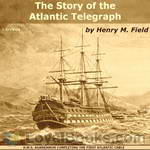 The Story of the Atlantic Telegraph
The Story of the Atlantic Telegraph
Cyrus W. Field had a dream: to link the Old World of Britain and Europe to that of the New World of North America by a telegraph cable stretching across the great Atlantic Ocean. It took him thirteen years, a lot of money, and many men and ships and cable to make it happen. He wanted to bring the world together and make it a smaller place; to forge alliances and achieve peace. This is his story. (Introduction by Alex C. Telander) | |
By: Olive Gilbert (?-?) & Sojourner Truth (1797-1883) | |
|---|---|
 The Narrative of Sojourner Truth
The Narrative of Sojourner Truth
The Narrative of Sojourner Truth is the gripping autobiographical account of Sojourner Truth's life as a slave in pre-Civil War New York State, and her eventual escape to Freedom. Since Sojourner could neither read or write, she dictated her story to Olive Gilbert after they met at a Women’s Rights rally. The Narrative was first published in 1850, and was widely distributed by the Abolitionist Movement. It was one of the catalysts for the rise of anti-slavery public opinion in the years leading up to the Civil War... | |
By: George Bethune English (1787-1828) | |
|---|---|
 A Narrative of the Expedition to Dongola and Sennaar
A Narrative of the Expedition to Dongola and Sennaar
As a second lieutenant in the United States Marine Corps during the War of 1812 assigned to Marine Corps headquarters, English sailed to the Mediterranean, and was among the first citizens of the United States known to have visited Egypt. Shortly after arriving in Egypt he resigned his commission, converted to Islam and joined Isma'il Pasha in an expedition up the Nile River against Sennar in 1820, winning distinction as an officer of artillery. He published his Narrative of the Expedition to Dongola and Sennaar (London 1822) regarding his exploits. (Introduction adapted by obform from Wikipedia) | |
By: Leonard Woolsey Bacon (1830-1907) | |
|---|---|
 History of American Christianity
History of American Christianity
Published in 1897, this book describes the advent of Christianity in the United States from the landing of the first explorers with their mission to convert the natives to the time immediately following the Civil War. Bacon discusses the church's response to the social, political and religious issues of the day, and provides an introduction to the beginnings of such para-church organizations as the YMCA and American Bible Society. | |
By: Frances Little (1863-1941) | |
|---|---|
 Little Sister Snow (version 2)
Little Sister Snow (version 2)
American author Fannie Caldwell, under pen name of Frances Little, tells the story of young Yuki San growing up in Japan circa early 1900s, and of her dreams of an American. (Introduction by Cheri Gardner) | |
By: Willard Glazier (1841-1905) | |
|---|---|
 Three Years in the Federal Cavalry
Three Years in the Federal Cavalry
Captain Glazier narrates his experiences as a cavalryman in the Federal Army during the Civil War, from his enlistment in New York State to his capture at the battle of Brandy Station. | |
By: Thomas Hodgkin (1831-1913) | |
|---|---|
 Theodoric the Goth
Theodoric the Goth
Theodoric the Great (~454-526) was king of the Ostrogoths during the time of the terminal decline of the Western Roman Empire. After wandering with his people through the Balkans, at times allied with the Eastern Empire, and at others, its enemy, he was invited by the Emperor Zeno to invade and conquer Italy on behalf of the Empire. He defeated the Germanic king Odovacar, who had himself deposed the last Emperor of the West, and established the Ostrogothic Kingdom in Italy. He became known as "King of the Goths and Romans in Italy", ruling according to the principle of civilitas. His reign was a time of stability and prosperity. ( Patrick Eaton) | |
By: Mary Anne Barker (1831-1911) | |
|---|---|
 Station Life in New Zealand
Station Life in New Zealand
Station Life in New Zealand is a collection of cheerful and interesting letters written by Lady Mary Anne Barker (nee Mary Anne Stewart) that is a New Zealand "classic". These letters are described in the Preface as "the exact account of a lady's experience of the brighter and less practical side of colonisation". The letters were written between 1865 and 1868 and cover the time of her travel with her husband (Frederick Broomie) to New Zealand and life on a colonial sheep-station at their homestead "Broomielaw", located in the Province of Canterbury, South Island of New Zealand... | |
By: Evaleen Stein (1863-1923) | |
|---|---|
 Gabriel and the Hour Book
Gabriel and the Hour Book
Brother Stephen has the heart of an artist and wishes to leave the abbey to travel and see the world. However, King Louis has decreed that an "hour book" be made for his bride, Lady Anne, which in turn causes the Abbott to refuse Brother Stephen's request to leave the brotherhood as his illuminations are the most beautiful, and as such, he desires that Brother Stephen should be the one to make the hour book. This decision angers Brother Stephen. Will Brother Stephen stay at the abbey and carry out his task or will he refuse and bring about a ban against him, a serious matter indeed... | |
By: Various | |
|---|---|
 Shield
Shield
This is not merely a book about the Russian Jews. It is a marvellous revelation of the Russian soul. It shows not only that the overwhelming majority of the Russian intellectuals, including nearly all of her brilliant literary geniuses, are opposed to the persecution of the Jews or any other race, but that they have a capacity for sympathy and understanding of humanity unequalled in any other land. I do not know of any book where the genius and heart of Russia is better displayed. Not only her leading litterateurs but also her leading statesmen and economists are represented—and all of them speak as with a single voice. | |
By: Lucy Leavenworth Wilder Morris (1865-1935) | |
|---|---|
 Old Rail Fence Corners
Old Rail Fence Corners
Old Rail Fence Corners is an historical treasure trove containing the stories of the first significant waves of European-American settlers in the now state of Minnesota (United States of America). This book has direct accounts of mid-19th century lives and experiences on the frontier, recounted by the frontiersmen and women when many of them were in their mid-90s. A group of volunteer women -- the Book Committee -- sought to record these recollections before they were lost with the passing of these remarkable adventurers... | |
By: Boyd Cable (1878-1943) | |
|---|---|
 Between the Lines
Between the Lines
This book, all of which has been written at the Front within sound of the German guns and for the most part within shell and rifle range, is an attempt to tell something of the manner of struggle that has gone on for months between the lines along the Western Front, and more especially of what lies behind and goes to the making of those curt and vague terms in the war communiqués. I think that our people at Home will be glad to know more, and ought to know more, of what these bald phrases may actually signify, when, in the other sense, we read 'between the lines.' | |
By: Randolph B. Marcy (1812-1887) | |
|---|---|
 Prairie Traveler
Prairie Traveler
Commissioned by the US War Department and written in 1859 by a decorated US Army captain, The Prairie Traveler is a complete how-to travel guide for the westward-bound pioneer. Covering topics from first aid for rattlesnake bites to how to travel 70 miles across the desert without water for one's livestock, the guide includes 28 travel itineraries with mileage and firewood availability. | |
By: Sam Cowan | |
|---|---|
 Sergeant York and His People
Sergeant York and His People
From a cabin back in the mountains of Tennessee, forty-eight miles from the railroad, a young man went to the World War. He was untutored in the ways of the world. Caught by the enemy in the cove of a hill in the Forest of Argonne, he did not run; but sank into the bushes and single-handed fought a battalion of German machine gunners until he made them come down that hill to him with their hands in air. There were one hundred and thirty-two of them left, and he marched them, prisoners, into the American line... | |
By: Frank Berkeley Smith (1869-1931) | |
|---|---|
 Real Latin Quarter
Real Latin Quarter
"Cocher, drive to the rue Falguière"--this in my best restaurant French. The man with the varnished hat shrugged his shoulders, and raised his eyebrows in doubt. He evidently had never heard of the rue Falguière. "Yes, rue Falguière, the old rue des Fourneaux," I continued. Cabby's face broke out into a smile. "Ah, oui, oui, le Quartier Latin." And it was at the end of this crooked street, through a lane that led into a half court flanked by a row of studio buildings, and up one pair of dingy waxed steps, that I found a door bearing the name of the author of the following pages--his visiting card impaled on a tack... | |
By: N. E. Dionne (1848-1917) | |
|---|---|
 The Makers of Canada: Champlain
The Makers of Canada: Champlain
A biography of Samuel de Champlain, French explorer, founder of Quebec, and father of New France. ( | |
By: David Dickinson Mann (1775-1811) | |
|---|---|
 Present Picture of New South Wales
Present Picture of New South Wales
Convicted of forgery at the age of 23, David Dickenson Mann narrowly escaped hanging and was transported instead to New South Wales, where he arrived in 1799. Three years later he received a full pardon and was soon working in the secretary's office of the colonial government. Mann fell foul of Governor Wiliam Bligh and was about to leave for England, but in 1808 found himself in favour with the rebel government that deposed him. The Present Picture of New South Wales, dedicated to the recently arrived Governor John Hunter, gives a detailed account of the colony ... | |
By: Archibald Forbes (1838-1900) | |
|---|---|
 The Afghan Wars 1839-42 and 1878-80, Part 1
The Afghan Wars 1839-42 and 1878-80, Part 1
The First Anglo–Afghan War was fought between British India and Afghanistan from 1839 to 1842. It was one of the first major conflicts during the Great Game, the 19th century competition for power and influence in Central Asia between the United Kingdom and Russia, and also marked one of the worst setbacks inflicted on British power in the region after the consolidation of British Raj by the East India Company. | |
By: Henry Bibb (1815-1854) | |
|---|---|
 Narrative of the Life and Adventures of Henry Bibb, an American Slave
Narrative of the Life and Adventures of Henry Bibb, an American Slave
Henry Walton Bibb was born a slave. His father was white although his identity was not positively known. Bibb was separated from his mother at a very young age and hired out to other slave owners for most of his childhood. Always yearning for his freedom, he made his first escape from slavery in 1842. He was recaptured and escaped, recaptured and escaped over and over; but he never gave up on his desire to be a man in control of his own destiny. | |
By: Elizabeth Wormeley Latimer (1822-1904) | |
|---|---|
 France in the Nineteenth Century
France in the Nineteenth Century
Author Elizabeth Latimer synthesizes notes from a variety of sources to produce this summary of the nation of France in the 19th century. (Summary by Cathy Barratt) | |
By: Sir Joseph Pope (1854-1926) | |
|---|---|
 Chronicles of Canada Volume 29 - The Day of Sir John Macdonald: A Chronicle of the First Prime Minister of the Dominion
Chronicles of Canada Volume 29 - The Day of Sir John Macdonald: A Chronicle of the First Prime Minister of the Dominion
A biography of Sir John A. Macdonald, the first Prime Minister of Canada. It was written by the man who served as Macdonald's private secretary from 1882 to 1891. | |
By: Henry Ossian Flipper (1856-1940) | |
|---|---|
 The Colored Cadet at West Point
The Colored Cadet at West Point
Henry Ossian Flipper--born into slavery in Thomasville, Georgia on March 21, 1856--did not learn to read and write until just before the end of the Civil War. Once the war had ended, Flipper attended several schools showing a great aptitude for knowledge. During his freshman year at Atlanta University he applied for admittance to the United States National Military Academy at West Point. He was appointed to the academy in 1873 along with a fellow African American, John W. Williams. Cadet Williams was later dismissed for academic deficiencies. | |
By: Elphinstone Dayrell (1869-1917) | |
|---|---|
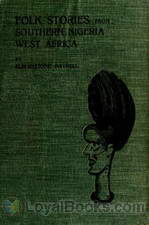 Folk Stories from Southern Nigeria, West Africa
Folk Stories from Southern Nigeria, West Africa
A collection of folk stories and fairy tales from Southern Nigeria gathered by Elphinstone Dayrell, deputy commissioner of the region when the book was published. - Summary by Elsie Selwyn | |
By: Richard Haigh (1895-) | |
|---|---|
 Life in a Tank
Life in a Tank
Richard Haigh was an Infantry lieutenant in the 2nd Royal Berkshire Infantry Regiment serving in the Somme area in 1916. Shortly after Tanks were first used in battle in September of 1916 the British Army asked for volunteers, Lieutenant Haigh signed up and was accepted in December of 1916. He describes the training and actions he participated in until the war ended in 1918. He was awarded MC in 1916 as Lt. (acting Capt.) Richard Haigh, Royal Berkshire Regiment. He was commissioned from the RMC (Sandhurst) to the Berkshires 16th Feb 1915; on resigning his commission in 1919, he joined the General Reserve of Officers. | |
By: Sarah Knowles Bolton (1841-1916) | |
|---|---|
 Lives of Poor Boys Who Became Famous
Lives of Poor Boys Who Became Famous
These characters have been chosen from various countries and from varied professions, that the youth who read this book may see that poverty is no barrier to success. It usually develops ambition, and nerves people to action. Life at best has much of struggle, and we need to be cheered and stimulated by the careers of those who have overcome obstacles.If Lincoln and Garfield, both farmer-boys, could come to the Presidency, then there is a chance for other farmer-boys. If Ezra Cornell, a mechanic, could become the president of great telegraph companies, and leave millions to a university, then other mechanics can come to fame... | |
By: Annie L. Burton (c. 1858-) | |
|---|---|
 Memories of Childhood's Slavery Days
Memories of Childhood's Slavery Days
This is a short and simple, yet poignant autobiography of Annie Burton, who recounts her early carefree childhood as a slave on a southern plantation while the Civil War raged around her, and after the Emancipation Proclamation, how her life changed as she struggled to maintain herself and family, manage her finances, and develop as a free person of color. The last half of the narrative relies heavily upon speeches, poems, and hymns written by others that stirred Annie's religious passions and increased her pride in her heritage, including a very powerful speech by Dr... | |
By: William Gunion Rutherford (1853-1907) | |
|---|---|
 Story of Garfield
Story of Garfield
A short biography of the 20th U.S. President. Garfield was raised in humble circumstances on an Ohio farm by his widowed mother and elder brother. Before he was elected president in the Republican party he was first elected to Congress in 1862 as Representative of the 19th District of Ohio. Then to the Senate in 1880. His presidency lasted just 200 days—from March 4, 1881, until his death on September 19, 1881, as a result of being shot by assassin Charles J. Guiteau on July 2, 1881. | |
By: Helen Nicolay (1866-1954) | |
|---|---|
 Boys' Life of Abraham Lincoln
Boys' Life of Abraham Lincoln
The Boys’ Life of Abraham Lincoln is a biography with many anecdotes that takes one deeper into the thoughts, personality, and beliefs of the man that was Lincoln. While the title indicates the book is about Lincoln’s life as a boy, the book is a full, if somewhat shortened biography. It is very well written and was a joy to record. One might ask, "Who was Helen Nicolay?" Her father, John George Nicolay, was Abraham Lincoln's private secretary and doubtless much of the material comes from his complete biography of Abraham Lincoln. ( | |
By: Reuben Gold Thwaites (1853-1913) | |
|---|---|
 Afloat on the Ohio
Afloat on the Ohio
Afloat on the Ohio, An Historical Pilgrimage, of a Thousand Miles in a Skiff, From Redstone to Cairo.There were four of us pilgrims—my Wife, our Boy of ten and a half years, the Doctor, and I. My object in going—the others went for the outing—was to gather "local color" for work in Western history. The Ohio River was an important factor in the development of the West. I wished to know the great waterway intimately in its various phases,—to see with my own eyes what the borderers saw; in imagination, to redress the pioneer stage, and repeople it. ( From the Preface ) | |
By: Agnes Edwards (1888-1954) | |
|---|---|
 Old Coast Road From Boston to Plymouth
Old Coast Road From Boston to Plymouth
A delightful trip from Boston through a dozen South Shore towns to Plymouth, stopping in each to explore a bit of the local history and 'modern' highlights. Written in 1920, it's a great journey through the past. | |
By: Mary Ella Lyng | |
|---|---|
 History Plays for the Grammar Grades
History Plays for the Grammar Grades
A charming collection of 14 short American history plays for the very young - ranging from Christopher Columbus to George Washington to Susan B Anthony. | |
By: C. C. James (1863-1916) | |
|---|---|
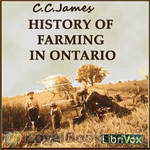 History of Farming in Ontario
History of Farming in Ontario
This paper takes the reader through the early settlement from 1783 to the modern period of 1888-1912. We see how farming and farm industries developed and how the population was distributed during these times. We see the trends of settlers moving into the Urban centers instead of rural and how the farm industries (making cheese, butter, wool, etc) move off the farm to the city factories. Excerpt: “The farmer’s wife in those days was perhaps the most expert master of trades ever known. She could spin and weave, make a carpet or a rug, dye yarns and clothes, and make a straw hat or a birch broom... | |
By: William Lawson Grant (1872-1935) | |
|---|---|
 Chronicles of Canada Volume 26 - The Tribune of Nova Scotia: A Chronicle of Joseph Howe
Chronicles of Canada Volume 26 - The Tribune of Nova Scotia: A Chronicle of Joseph Howe
Joseph Howe (1804-1873) was one of Nova Scotia's greatest and best-loved politicians. He was instrumental in helping Nova Scotia become the first British colony to win responsible government in 1848. A Liberal, he fought against Canadian Confederation. This work highlights his life and causes. | |
By: John Henry Ingram (1842-1916) | |
|---|---|
 Claimants to Royalty
Claimants to Royalty
A compilation of chronicles of the numerous impostors and impostures of kings, queens, and rulers. | |
By: Austin Bishop | |
|---|---|
 Tom of the Raiders
Tom of the Raiders
Young Adult historical fiction of a young man joining the Union Army and taking part in the Great Locomotive Chase. | |
By: Lucy Ann Delaney (c. 1830-?) | |
|---|---|
 From the Darkness Cometh the Light, or Struggles for Freedom
From the Darkness Cometh the Light, or Struggles for Freedom
In From the Darkness Cometh the Light, or Struggles for Freedom Delaney tells the story of how she was born into slavery of her mother--a freeborn black woman who had been kidnapped and sold on the blocks--but escaped while a teenager and eventually sued in court for her freedom. After the Civil War, Delaney spent the rest of her life inspiring other African Americans to take advantage of the new opportunities available to them as a result of their new found freedom, and to constantly strive to improve their lives and the lives of their progeny | |
By: Archibald MacMechan (1862-1933) | |
|---|---|
 Chronicles of Canada Volume 27 - The Winning of Popular Government: A Chronicle of the Union of 1841
Chronicles of Canada Volume 27 - The Winning of Popular Government: A Chronicle of the Union of 1841
In the 1830's, Canada was a ideologically divided country. Political upheaval and even riots occurred over Canada's future. Would it remain a subsidiary of England? Would it form its own republic, or even merge with the United States? This work tells of how some of Canada's founding fathers crossed the bridge between past and future. | |
By: Josephine Butler (1828-1906) | |
|---|---|
 Native Races and the War
Native Races and the War
Josephine Elizabeth Butler was a Victorian era British feminist who was strongly committed to liberal reforms. As a result of her efforts, international organisations including the International Abolitionist Federation were set up to campaign against state regulation of prostitution and the trafficking in women and children. This book reflects her abhorrence of slavery in all its forms and is particularly pertinent in our world of today. | |
By: Various | |
|---|---|
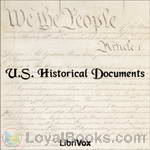 U.S. Historical Documents
U.S. Historical Documents
The Articles of Confederation: On November 15th, 1777 The Articles of Confederation became the first constitution of the United States, though not yet ratified by the thirteen original colonies. Ratification of the Articles took place almost three and a half years later on March 1st, 1781. The purpose of the articles was to create a confederation of sovereign states with a weak central government; thus allowing state governments to wield most of the power. It wasn’t long before the need for a stronger federal government was realized which led to the Articles being replaced by the United States Constitution... | |
 30 American Poems
30 American Poems
This is a sequel of sorts to 37 American Poems, one of my first solos. Concentration here is on late 19th to early 20th Century works by US poets. | |
By: Unknown | |
|---|---|
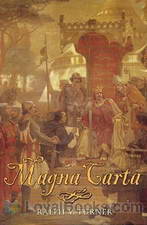 Magna Carta
Magna Carta
The original document is in Latin so this can only be a fairly rough approximation of the actual content. The text used is the first version in the Gutenberg collection. – Magna Carta is the most significant early influence on the long historical process that has led to the rule of constitutional law today. Magna Carta was originally created because of disagreements between the Pope, King John and his English barons over the rights of the King. Magna Carta required the king to renounce certain rights and respect certain legal procedures and to accept that the will of the king could be bound by law. | |
 United Kingdom House of Commons Speeches Collection
United Kingdom House of Commons Speeches Collection
This collection comprises recordings of 17 historic speeches given to the UK House of Commons between 1628 and 1956. Readings are of speeches origninally given by parliamentarians including Oliver Cromwell, Edmund Burke, William Wilberforce, William Gladstone, Keir Hardie, Winston Churchill and Aneurin Bevan. | |
By: The Venerable Bede (673-735) | |
|---|---|
 Ecclesiastical History of England
Ecclesiastical History of England
Bede's Ecclesiastical History of England is a work in Latin by Bede on the history of the Christian Churches in England, and of England generally; its main focus is on the conflict between Roman and Celtic Christianity. It is considered to be one of the most important original references on Anglo-Saxon history. It is believed to have been completed in 731, when Bede was approximately 59 years old. Divided into five books, it covers the history of England, ecclesiastical and political, from the time of Julius Caesar to the date of its completion (731)... | |
By: Unknown | |
|---|---|
 A School History of the Great War
A School History of the Great War
A brief history of The Great War (World War I) designed for students in grades seven and eight. Special emphasis on European history leading up to the war, reasons and events leading to America’s eventual entering the war, and possible ramifications of the war for future generations. | |
 United Kingdom House of Lords Speeches Collection
United Kingdom House of Lords Speeches Collection
This collection comprises recordings of seven historic speeches given to the UK House of Lords between 1641 and 1945. Readings are of speeches origninally given by the 1st Earl of Strafford (Thomas Wentworth), the 1st Earl of Chatham (William Pitt the Elder), the 6th Baron Byron (the poet Lord Byron), the 1st Duke of Wellington (Arthur Wellesley), the 3rd Earl of Lucan (George Lord Bingham) and the 3rd Earl Russell (the philosopher Bertrand Russell). | |
 The Epistle of Polycarp to the Philippians
The Epistle of Polycarp to the Philippians
Polycarp’s Letter to the Philippians (often simply called To the Philippians) composed around 110 to 140 AD [1] is described by Irenaeus as follows: There is also a forceful epistle written by Polycarp to the Philippians, from which those who wish to do so, and are anxious about their salvation, can learn the character of his faith, and the preaching of the truth. (J. Stevenson, A new Eusebius [London: SPCK, 1965] p. 120) This is one quote from the epistle: “Stand fast, therefore, in this conduct... | |
 The Romance of Missionary Heroism
The Romance of Missionary Heroism
The title page gives this book the subtitle, “True stories of the intrepid bravery and stirring adventures of missionaries with uncivilized man, wild beasts, and the forces of nature in all parts of the world.” The thrilling accounts in this collection include stories of Jacob Chamberlain’s medical ministry in India, the dangers faced by Alexander Mackay in Uganda, James Chalmers’ work among the headhunters of New Guinea, John Paton’s mission to the South Sea cannibals, and the Hawaiian queen Kapiolani’s challenge to the gods of the volcano... | |
By: John R. Musick (1849-1901) | |
|---|---|
 The Witch of Salem
The Witch of Salem
A Historical Novel about the Salem Witch Trials. A fantastic illustrated historical novel by the prolific American author John R. Musick From the author’s preface: The "Witch of Salem" is designed to cover twenty years in the history of the United States, or from the year 1680 to 1700, including all the principal features of this period. Charles Stevens of Salem, with Cora Waters, the daughter of an indented slave, whose father was captured at the time of the overthrow of the Duke of Monmouth, are the principal characters... | |
By: George Alfred Henty (1832-1902) | |
|---|---|
 Beric the Briton - A Story of the Roman Invasion
Beric the Briton - A Story of the Roman Invasion
My series of stories dealing with the wars of England would be altogether incomplete did it not include the period when the Romans were the masters of the country. The valour with which the natives of this island defended themselves was acknowledged by the Roman historians, and it was only the superior discipline of the invaders that enabled them finally to triumph over the bravery and the superior physical strength of the Britons. The Roman conquest for the time was undoubtedly of immense advantage to the people -- who had previously wasted their energies in perpetual tribal wars -- as it introduced among them the civilization of Rome... | |
By: Calista McCabe Courtenay | |
|---|---|
 George Washington
George Washington
In this biography for young people, Calista McCabe Courtenay takes the reader from George Washington the surveyor to his early military career, first as a colonel in the Virgina militia and then as a member of General Braddock'a staff during the French and Indian War. He later commanded the Virginia forces before joining the First Continental Congress. Much of the book is devoted to his campaigns during the American Revolution. At the end, we see him as President for two terms. | |
By: Charles A. Siringo (1855-1928) | |
|---|---|
 History of Billy the Kid
History of Billy the Kid
A cowboy outlaw whose youthful daring has never been equalled in the annals of criminal history.When a bullet pierced his heart he was less than twenty-two years of age, and had killed twenty-one men, Indians not included.The author feels that he is capable of writing a true and unvarnished history of "Billy the Kid," as he was personally acquainted with him, and assisted in his capture, by furnishing Sheriff Pat Garrett with three of his fighting cowboys--Jas. H. East, Lee Hall and Lon Chambers... | |
By: Aaron Smith (?-1862) | |
|---|---|
 The Atrocities of the Pirates
The Atrocities of the Pirates
In 1822, Aaron Smith, a young English seaman, was taken captive by Cuban pirates when his ship was boarded en route from Jamaica to England. Forced to work as a navigator and as a member of pirate boarding parties, he witnessed unspeakable acts of murder and torture. Befriended by a young Cuban woman, he managed to escape with his life, but was arrested as a pirate in Havana and sent back to England in chains. There, he found himself on trial for his life at the Old Bailey courthouse—with the attorney general himself leading the prosecution. Smith's dramatic account of his personal experience is a brutally honest, unromanticized [sic] look at piracy in the 19th century. | |
By: Theodore Roosevelt (1858-1919) | |
|---|---|
 The Naval War of 1812
The Naval War of 1812
Somewhat detailed history of naval engagements between the United States and England during the War of 1812, from a decidely American perspective. Completed by the author as a young man at age 24. After 120 years, it remains a standard study of the war. | |
By: Jacob Abbott (1803-1879) | |
|---|---|
 Romulus
Romulus
Jacob Abbott wrote many historical books for children. He was careful to ensure historical accuracy, and as he said himself in the preface to this book "Whatever of interest ... these stories may possess is due solely to the facts themselves which are recorded in them, and to their being brought together in a plain, simple, and connected narrative."This is the story of Romulus, the founding of Rome and the early years of its history, written in a way both readable and enjoyable for adults and children alike. | |
By: Thomas Whittaker (1856-1935) | |
|---|---|
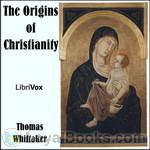 The Origins of Christianity
The Origins of Christianity
The full title of this book is The Origins of Christianity with an Outline of Van Manen’s Analysis of The Pauline Literature. Willem Christiaan van Manen (1842-1905) was a Dutch theologian. The vast majority of van Manen’s radical criticism of the New Testament and Christian origins has never been translated into English.In this book, Thomas Whittaker outlines the arguments of van Manen for an English-speaking audience. Van Manen’s work is not now generally known, but his views obtained notoriety by the articles and books that he wrote, in which he maintained that none of the Epistles that bear the Apostle Paul’s name were in fact written by him... | |
By: Owen Wister | |
|---|---|
 Ulysses S. Grant
Ulysses S. Grant
Ulysses S. Grant was the great hero (for the North) in the Civil War and the 18th President of the United States. This short biography is only 145 pages in a little pamphlet size. The author is famous for his stories of the Old West, but he also wrote a substantial body of nonfiction literature. | |
By: Captain John Smith (1580-1631) | |
|---|---|
 A Description of New England
A Description of New England
Captain John Smith (c. January 1580 – June 21, 1631) Admiral of New England was an English soldier, explorer, and author. He was knighted for his services to Sigismund Bathory, Prince of Transylvania. He is remembered for his role in establishing the first permanent English settlement in North America at Jamestown, Virginia, and his brief association with the Virginia Indian girl Pocahontas during an altercation with the Powhatan Confederacy and her father, Chief Powhatan. He was a leader of the Virginia Colony (based at Jamestown) between September 1608 and August 1609, and led an exploration along the rivers of Virginia and the Chesapeake Bay... | |
By: Ida M. Tarbell (1857-1944) | |
|---|---|
 The History of Standard Oil: Volume 1
The History of Standard Oil: Volume 1
The History of the Standard Oil Company is a book written by journalist Ida Tarbell in 1904. It was an exposé of the Standard Oil Company, run at that time by oil tycoon John D. Rockefeller the richest figure in America's history. Originally serialized in 19 parts in McClure's magazine, the book was a seminal example of muckraking, and inspired many other journalists to write about trusts, large businesses that (in the absence of strong antitrust law in the 19th century) attempted to gain monopolies in various industries... | |
By: Ambrose Bierce (1842-1913) | |
|---|---|
|
At the outset of the American Civil War, [the writer Ambrose] Bierce enlisted in the Union Army's 9th Indiana Infantry Regiment....In February 1862 he was commissioned First Lieutenant, and served on the staff of General William Babcock Hazen as a topographical engineer, making maps of likely battlefields. Bierce fought at the Battle of Shiloh (April 1862), a terrifying experience that became a source for several later short stories and the memoir, "What I Saw of Shiloh". In June 1864, he sustained a serious head wound at the Battle of Kennesaw Mountain, and spent the rest of the summer on furlough, returning to active duty in September. He was discharged from the army in January 1865. | |
By: Charles Francis Adams, Sr. (1807-1886) | |
|---|---|
 Letters of Mrs. Adams, the Wife of John Adams, Vol. 1
Letters of Mrs. Adams, the Wife of John Adams, Vol. 1
Abigail Adams lived the American Revolution as the wife of one of its central figures--John Adams. Her family correspondence, published along with a memoir by her grandson, Charles Francis Adams, brings that era into eloquent focus. What was it like to hear the cannon's roar from your window? to face pestilence? food shortages? rampant inflation? devalued coinage? to raise four children alone--and earn the money to keep your household afloat, while your husband was engaged in politics and diplomacy miles and oceans away ... | |
By: Louis Hughes (1832-1913) | |
|---|---|
 Thirty Years A Slave
Thirty Years A Slave
Louis Hughes was born a slave near Charlottesville, Virginia to a white father and a black slave woman. Throughout his life he worked mostly as a house servant, but was privy to the intimate details and workings of the entire McGee cotton plantation and empire.In Thirty Years A Slave Hughes provides vivid descriptions and explicit accounts of how the McGee plantation in Mississippi, and the McGee mansion in Tennessee functioned--accounts of the lives of the many slaves that lived, suffered and sometimes died under the cruel and unusual punishments meted out by Boss and his monstrously unstable and vindictive wife... | |
By: Alban Butler (1711-1773) | |
|---|---|
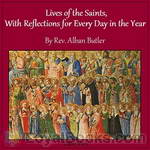 Lives of the Saints, With Reflections for Every Day in the Year
Lives of the Saints, With Reflections for Every Day in the Year
Compiled from the much larger 12 book set of "Butler's Lives of the Saints", this volume contains short biographies of the Saints, for each day of the year, followed by a reflection for each entry. | |
By: John Lloyd Stephens (1805-1852) | |
|---|---|
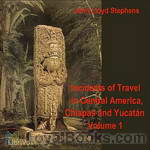 Incidents of Travel in Central America, Chiapas, and Yucatan, Vol. 1
Incidents of Travel in Central America, Chiapas, and Yucatan, Vol. 1
The year is 1838. The scene is the dense Honduran forest along the Copán River. Two men, John Lloyd Stephens and Frederick Catherwood, are about to rediscover Mayan civilization. Their guide, slashing through the rampant growth with his machete, leads them to a structure with steps up the side, shaped like a pyramid. Next they see a stone column, fourteen feet high, sculptured on the front with a portrait of a man, “solemn, stern and well fitted to excite terror,” covered on the sides with hieroglyphics, and with workmanship “equal to the finest monuments of the Egyptians... | |
By: Peter Kropotkin (1842-1921) | |
|---|---|
 Memoirs of a Revolutionist, Vol. 1
Memoirs of a Revolutionist, Vol. 1
'Peter Kropotkin was a Russian anarcho-communist and scientist. This is his autobiography, and he writes not only about his own life, but also about 19th century Russian society and politics. He was born into the nobility and had a military education, but he gradually abandoned the values of his social class and became an anti-authoritarian socialist, opposed to both the rule of the Tsars and to the seizing of power by the authoritarian Bolsheviks. He was also interested in literature, biology, economics and geographical exploration. This first volume of his memoirs covers his childhood, his education, and the time he spent in Siberia. '. (Introduction by Elin, ) | |
By: Hermann Gunkel | |
|---|---|
 The Legends of Genesis
The Legends of Genesis
The Legends of Genesis is the English translation of the introduction to Gunkel’s massive commentary, Genesis. Gunkel uses form critical analysis on the text of Genesis to determine the various genres of the biblical legends and their significance to the authors. Gunkel also uses form criticism to uncover buried clues as to the constituent sources of the text. Gunkel offers his hypothesis to explain how the various sources came to be combined and redacted, and how the text later came to be attributed to Moses. | |
By: Anonymous | |
|---|---|
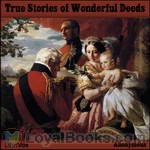 True Stories of Wonderful Deeds
True Stories of Wonderful Deeds
37 short pieces perfect for newer recorders. These one page Stories of (mostly) Wonderful Deeds were written for Little Folk to teach them about famous incidents in their history. Bonnie Prince Charlie, Nelson and Hardy, Bruce and the Spider, David Livingston, Canute, Sir Philip Sydney, and Elizabeth and Raleigh are just some of the well known people and incidents covered in short stories. | |
By: Pierre Loti (1850-1923) | |
|---|---|
 War
War
Pierre Loti [Julien Viaud] (1850-1923) was a French naval officer and novelist. The present book is one of his few works of non-fiction, a small collection of letters and diary entries that describe his views and experiences in the wars and military operations in which he participated. Besides World War I, he also sheds light upon his views and involvement in the preparations for the Turkish Revolution of 1923, for which until today a famous hill and popular café in Istanbul are named after him. | |
By: Benjamin Harris (1781-1858) | |
|---|---|
 The Recollections of Rifleman Harris
The Recollections of Rifleman Harris
The recollections of a British infantryman who served in the British army during the Napoleonic Wars. | |
By: H. G. Wells (1866-1946) | |
|---|---|
 Anticipations
Anticipations
Wells considered this book one of his most important, a natural follow-up to such works as his Man of the Year Million and The Time Machine. His goal was to get people to think and act in new ways. The book starts with a look at how humans get along socially and how they carry out their business ventures. It then discusses how these elements influence others, such as politics, the world of work, and education. H. G. tried to make clear how the current social order was disintegrating without preparing another to take its place. He then traced the roots of democracy, which in its present state he saw as unworkable. Instead, he proposed a new republic. He also critiqued modern warfare. | |
By: Charles Morris (1833-1922) | |
|---|---|
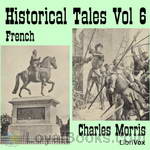 Historical Tales, Vol VI: French
Historical Tales, Vol VI: French
Volume VI of a series containing anecdotes and stories, some well-known, others less so, of particular countries. This fifth volume covers the history of France from the Hun invasion of Europe in the 5th century up to the Prussian War, describing history for children and young adults in an exciting and novel manner. (Introduction by Kalynda) | |
By: Ida M. Tarbell (1857-1944) | |
|---|---|
 The History of Standard Oil: Volume 2
The History of Standard Oil: Volume 2
The History of the Standard Oil Company is a book written by journalist Ida Tarbell in 1904. It was an exposé of the Standard Oil Company, run at that time by oil tycoon John D. Rockefeller, the richest figure in America's history. Originally serialized in 19 parts in McClure's magazine, the book was a seminal example of muckraking, and inspired many other journalists to write about trusts, large businesses that (in the absence of strong antitrust law in the 19th century) attempted to gain monopolies in various industries. The History of the Standard Oil Company was credited with hastening the breakup of Standard Oil, which came about in 1911. | |
By: Various | |
|---|---|
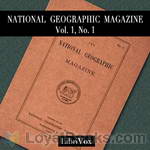 National Geographic Magazine Vol. 01 No. 1.
National Geographic Magazine Vol. 01 No. 1.
National Geographic Magazine Volume 1 Number 1 published in 1889. Topics of articles are:Announcement by the National Geographic SocietyIntroductory Address by the PresidentGeographic Methods in Geologic InvestigationClassification of Geographic Forms by GenesisThe Great Storm of March 11 to 14, 1888The Great Storm off the Atlantic Coast of the United States, March 11th to 14th, 1888The Survey of the CoastThe Survey and Map of Massachusetts | |
By: Neil Munro (1863-1930) | |
|---|---|
 Doom Castle
Doom Castle
Doom Castle is the story of young Count Victor's journey to Scotland after the Jacobite Rebellion, searching for a traitor to the Jacobite cause as well as a mysterious man under the name of "Drimdarroch", whom he swore revenge. After a perilious journey, Count Victor arrives at Doom Castle as a guest of the enigmatic Baron of Doom, his two strange servitors and his beautiful daughter... (Summary by Carolin) | |
By: Geoffrey H. Malins (1887-1943) | |
|---|---|
 How I Filmed the War
How I Filmed the War
An account of World War I and the experience of filming it by an early cinematographer (and, after the war, successful director) who was there. | |
By: Lord Thomas Cochrane (1775-1860) | |
|---|---|
 Autobiography of a Seaman, Vol. 1
Autobiography of a Seaman, Vol. 1
This two volume work is the autobiography of Lord Cochrane, a naval captain of the Napoleonic period. His adventures are seminal to the development of naval fiction as a genre. Marryat sailed with Cochrane, while later writers borrowed incidents from this biography for their fictions. Most notable among these is Patrick O'Brian, three of whose novels have clear parallels to incidents in the life of Cochrane. This first volume covers Cochrane's earlier life, during which he is most active militarily. (Introduction by Timothy Ferguson) | |
By: W. Max Reid (1839-1911) | |
|---|---|
 The Mohawk Valley
The Mohawk Valley
An in-depth view and early history of the Mohawk Valley in upper New York state, covering the time period of 1609-1780. This historical piece covers that part of the Mohawk Valley between Schenectady and Rome, NY.The narrator hopes that the listener understands that a best effort has been made in pronunciation of many names within this work; particularly those of the Mohawks, Iriquois, Huron, and Mohicans; as well as the French and Dutch. | |
By: Gaston Maspero (1846-1916) | |
|---|---|
 Manual of Egyptian Archaeology and Guide to the Study of Antiquities in Egypt
Manual of Egyptian Archaeology and Guide to the Study of Antiquities in Egypt
A handbook of Egyptian archaeology, issued by the British Museum, considered suitable for British tourists travelling to Egypt in the 19th Century. (Introduction by Timothy Ferguson) | |
By: William Wells Brown (1814-1884) | |
|---|---|
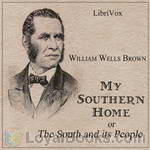 My Southern Home or, The South and Its People
My Southern Home or, The South and Its People
William Wells Brown was born a slave, near Lexington, Kentucky. His mother, Elizabeth, was a slave; his father was a white man who never acknowledged his paternity. Brown escaped slavery at about the age of 20. For many years he worked as a steam boatman and as a conductor for the Underground Railroad in Buffalo, New York. In 1843, he became a lecturer for the Western New York Anti-Slavery Society, and was a contemporary of Frederick Douglass.Brown went to Europe in 1849 to encourage British support for the anti-slavery movement in the United States... | |
By: Various | |
|---|---|
 The Night Side of New York
The Night Side of New York
This nonfiction collection of sketches, by "members of the New York press," takes the reader on a tour of 1866 New York City after dark, with stops along the way to vividly depict scenes ranging from the splendid to the squalid - but focusing largely on the latter! | |
By: Elizabeth Cady Stanton (1815-1902) | |
|---|---|
 Eighty Years and More; Reminiscences 1815-1897
Eighty Years and More; Reminiscences 1815-1897
Elizabeth Cady Stanton was one of the premier movers in the original women’s rights movement, along with Susan B. Anthony, her best friend for over 50 years. While Elizabeth initially stayed home with her husband and many babies and wrote the speeches, Susan went on the road to bring the message of the women’s rights movement to an often hostile public. When black men were given the vote in 1870, Susan and Elizabeth led the women’s rights establishment of the time to withhold support for a bill that would extend to black men the rights still denied for women of all colors... | |
By: William Cooper Howells | |
|---|---|
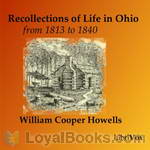 Recollections of Life in Ohio, from 1813 to 1840
Recollections of Life in Ohio, from 1813 to 1840
Recollections of Life in Ohio is the autobiography of William Cooper Howells (1807-1894), father of the American novelist William Dean Howells. The Howells were Welsh woolen mill owners. William Cooper's father brought the family to America in 1808--at a time when Great Britain actually forbid skilled workmen from emigrating, thus putting the father's practical knowledge of mill machinery in great demand. Small scale industries--paper and woolen mills, flour mills, and distilleries were sprouting apace with farms in the newly opened lands of Ohio, where the Howells settled in 1813... | |
By: Thomas Cooper (1805-1892) | |
|---|---|
 The Bridge of History Over the Gulf of Time: A Popular View of the Historical Evidence for the Truth of Christianity
The Bridge of History Over the Gulf of Time: A Popular View of the Historical Evidence for the Truth of Christianity
Written by the former skeptic, poet, and scholar, Thomas Cooper, The Bridge of History Over the Gulf of Time admirably sets forth a winsome defense of Christianity. Written as the substance of fourteen years of lectures, at the request of his hearers, Cooper leads his reader across the bridge of history, through the centuries, tracing Christianity. At last, he addresses "Leben Jesu" by Dr. David Friedrich Strauss, discusses the historicity of the four Gospels, and offers some concluding evidences for the truth of Christianity. (Introduction by tzieger) | |
By: Peter Kropotkin | |
|---|---|
 Memoirs of a Revolutionist, Vol. 2
Memoirs of a Revolutionist, Vol. 2
Peter Kropotkin was a Russian anarcho-communist and scientist. This is his autobiography, and he writes not only about his own life, but also about 19th century Russian society and politics. He was born into the nobility and had a military education, but he gradually abandoned the values of his social class and became an anti-authoritarian socialist, opposed to both the rule of the Tsars and to the seizing of power by the authoritarian Bolsheviks. He was also interested in literature, biology, economics and geographical exploration. This second and last volume of his memoirs covers his time in St Petersburg, his time in prison, and his journeys in Western Europe. ( | |
By: Plato (424-348 BC) | |
|---|---|
 Laws
Laws
Νόμοι (Laws) is Plato's final dialogue written after his attempt to advise the tyrant Dionysius II of Syracuse. The dialogue takes place between: an Athenian Stranger (Socrates? A god in human form?); the quiet Lacedaemonian Megillus; and the Cretan Cleinias. The Stranger asks whether humans live to be more effective at waging war or if there is something more important a legislator should seek to achieve. During their pilgrimage Cleinias discloses his role in the establishment of a new colony... | |
By: Henry Morgenthau (1856-1946) | |
|---|---|
 Ambassador Morgenthau's Story
Ambassador Morgenthau's Story
Ambassador Morgenthau’s memoirs of his years in the service of the United States in Constantinople, (today Istanbul), are an important primary historical resource for the study of the dissolution of the Ottoman Empire and the Armenian Genocide. During this genocide, approximately 1,500,000 Armenians living in Anatolia were murdered in an attempt to rid Turkey of its non-Turkish populations. Mr. Morgenthau left Turkey a frustrated man, having done all that he was able through diplomatic circles to halt the murders, to no avail... | |
By: Theodore Roosevelt (1858-1919) | |
|---|---|
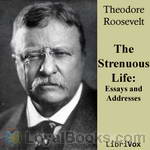 Strenuous Life: Essays and Addresses of Theodore Roosevelt, The
Strenuous Life: Essays and Addresses of Theodore Roosevelt, The
This book is a collection of Theodore Roosevelt’s published commentaries and public addresses on the general theme of the requirements for individual and collective success in the personal, civic, political, and social arenas. (Introduction by Bob Neufeld) | |
By: Jacob A. Riis (1849-1914) | |
|---|---|
 Neighbors – Life Stories of the Other Half
Neighbors – Life Stories of the Other Half
These stories have come to me from many sources—some from my own experience, others from settlement workers, still others from the records of organized charity, that are never dry, as some think, but alive with vital human interest and with the faithful striving to help the brother so that it counts. They have this in common, that they are true. For good reasons, names and places are changed, but they all happened as told here. I could not have invented them had I tried; I should not have tried if I could... | |
By: Mark Twain | |
|---|---|
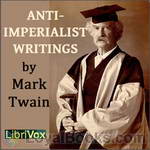 Anti-imperialist writings
Anti-imperialist writings
This audiobook is a collection of Mark Twain's anti-imperialist writings (newspaper articles, interviews, speeches, letters, essays and pamphlets). | |
By: Annonymous | |
|---|---|
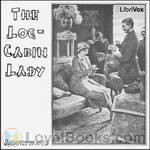 The Log-Cabin Lady
The Log-Cabin Lady
'The story of The Log-Cabin Lady is one of the annals of America. It is a moving record of the conquest of self-consciousness and fear through mastery of manners and customs. It has been written by one who has not sacrificed the strength and honesty of her pioneer girlhood, but who added to these qualities that graciousness and charm which have given her distinction on two continents.'(from the introduction) | |